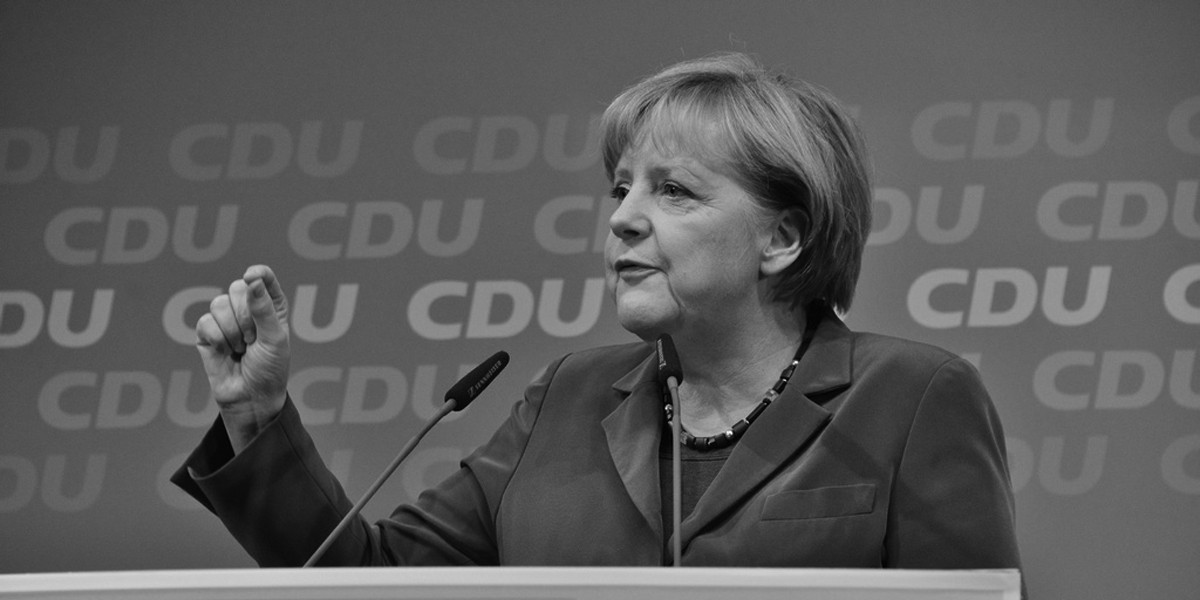The benefit of the doubt: Germany’s coalition deal
This Wednesday, German politics produced a big buzz. The final draft of the coalition treaty between the Union parties (CDU and CSU) and the Social Democrats (SPD) was signed. The 170 pages contain much ‘styrofoam language’, designed to cushion the mentalities...
This Wednesday, German politics produced a big buzz.
The final draft of the coalition treaty between the Union parties (CDU and CSU) and the Social Democrats (SPD) was signed. The 170 pages contain much ‘styrofoam language’, designed to cushion the mentalities of all parties involved, but there are also some real policy decisions in there that deserve attention.
The first and most important thing is that the treaty officially puts to rest the kind of neoliberal reform agenda that in Germany is running under the term “Agenda policies”, based on the infamous and unpopular Agenda2010-reforms of the social democratic chancellor Schröder back in 2003/5.
The idea that everyone is responsible for himself and that society shouldn’t bear the burden of individual hardship lost their only vocal supporter this fall, when the Liberals (FDP) failed to pass the 5%-threshold required to sit in the Bundestag.
The coalition treaty, while certainly continuing many policies of the past diverts from the dogma of deregulation and privatization in several key aspects that deserve special consideration.
At first, Germany will finally gain a minimum wage. The Social Democrat’s failure to insert one in the Agenda2010-reforms has attributed strongly to the rise of the German organized left (Die Linke), which plagues the SPD by competing in the progressive electorate. The CDU was forced to accept the SPD demand of €8.50 per hour, in West Germany as well as in East Germany.
Since living standards are considerably lower in East Germany even 20 years after reunification, many experts expect a decline in economic activity in the East and benefits in the West, but overall, the effects are considered to be muffled. The core of the German workforce, working in the export-oriented industry, won’t be affected, since the influence of unions is still strong there and wages are generally way above €8.50 in these sectors. Instead, the tertiary sector will be most affected.
Another big victory for the SPD is the effective end of the mandatory retirement age of 67 that was introduced by the last grand coalition in 2007. Under the new rules, if you work for 45 consecutive years, you will be able to retire without penalties, enabling retirement as early as 63. This mostly affects the unskilled workforce since they are the only ones to work through since the age of 18. But it’s an adaption to the realities of life for these people and marking the beginning of more flexible retirement regulations.
The CDU, on the other hand, scored significant victories as well. They completely dismantled the SPD call to tax increases of the wealthy and decided to put all coalition goals under Finanzierungsvorbehalt, which means that they will only be implemented when the money for it is at hand. This is unlikely, since tax increases are off the table and both parties are adamant in their resolve not to increase the national debt. This could effectively kill many policies that are now agreed to in the treaty. Whether or not this will happen is mostly up to the day-to-day-politics that both parties are capable of.
The CDU also succeeded in cementing the German foreign and monetary policy. Not only will the power to decide it remain with Merkel, her current course of action (austerity in the PIIGS countries and a commitment to low inflation for the ECB) will define the next four years as well. The SPD arguments for an altered policy concerning the European Union and the currency union especially, which had already been significantly muted in the election campaign are almost entirely defeated.
For now, the treaty is only a heap of legalistic paper. The parliamentary realities will show whether or not the SPD will be able to transform its negotiation successes into substantive policy. But the skill the party displayed in the negotiations gives cause to light optimism at least. I, for one, give the Social Democrats the benefit of the doubt.
